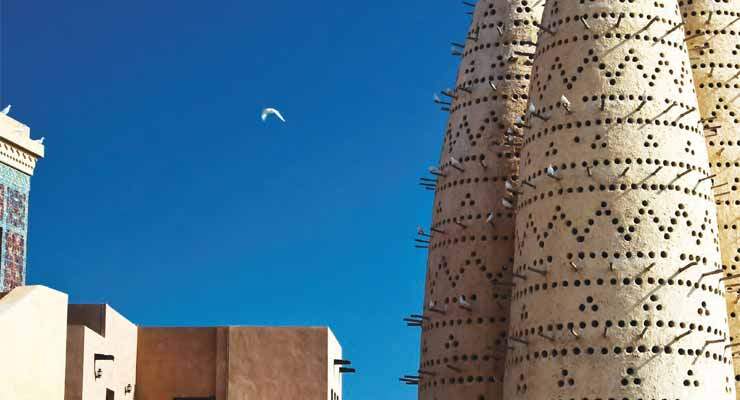TO CHANNEL THE DIVERSE CHARACTERISTICS OF THE COUNTRY AND ITS PEOPLE THROUGH A STRONG BRANDING CAMPAIGN IN A BID TO POSITION THE DESTINATION AS A WORLD-CLASS HUB WITH DEEP CULTURAL ROOTS.
Having recorded double-digit average GDP growth since 2004, Qatar has become one of the world’s richest countries per capita, with a resilient economy propelled by the hydrocarbon and export industries, and, nevertheless, its steadily evolving tourism sector, which is expected to continue to flourish over the coming years.
“As Qatar is constantly booming, it has become a must-visit destination, and with the 2022 FIFA World Cup being awarded to the country, Qatar is putting itself on the world map as a tourist attraction,” supported Joelle Lahlouh, cluster public relations and marketing manager, Wyndham Grand Regency Doha and Ramada Encore Doha.
To this end, as Cyril Mouawad, executive assistant manager, InterContinental Doha, explained, Qatar is using all its resources to place the country on the global scene. From a new state-of-the-art airport to internationally acclaimed sports facilities, conference centres and, nevertheless, major investments into the promotion of its cultural and touristic offering, Qatar spares no effort, Mouawad reiterated.
The key pillars of the industry’s steady growth over the past years have been the improvement of its air, rail and road infrastructure, the notable expansion of the country’s hotel room stock, particularly within the five-star segment along with the introduction of more establishments bearing four or three stars, and the development of new sport stadiums in preparation for the upcoming tournaments, explained Jochen Schmid, area general manager, International Hospitality, the management company of Plaza Inn Doha and City Inn Al Seef.
Schmid praised Qatar Tourism Authority (QTA)’s proactive approach to engaging visitors, which is being strongly supported by the government, especially when it comes to staging international conferences and other prestigious events.
The tourism industry is in fact fully supported by the emir and the state’s leadership which has, over the past years, invested billions of dollars into infrastructure, facilities and services.
“Tourism is an engine for development,” reiterated H.E. Sheikh Ahmed bin Jassim Al Thani, economy and commerce minister, Qatar, saying that besides helping to introduce Qatar’s culture and achievements to the world, the industry also contributes a notable share to the national GDP.
Through its strong characteristics, tourism is capable of driving revenues and spurring growth even in times of increased geopolitical or economic challenges, pinpointed Al Thani, saying that for these reasons it has proved to be one of the most flexible and resilient industries over the past years.
As Al Thani explained, Qatar has allocated some USD40 – 45 billion for the enhancement of the destination’s tourism product, demonstrating the state’s firm belief in the strength of tourism and its widespread potential.
As Schmid noted, all these have helped Qatar achieve the second position within MENA in 2015 in the World Economic Forum’s travel and tourism competitiveness report.
The Gulf state, however, is not resting on its laurels and as Rami Sayess, general manager, Four Seasons Hotel Doha, highlighted, Qatar’s national strategy for 2030 aims to propel the country forward by balancing economic accomplishments with human and natural resources; a clear roadmap, which, according to Sayess, will create an environment that can ensure future socioeconomic growth even in the face of regional and global challenges.









